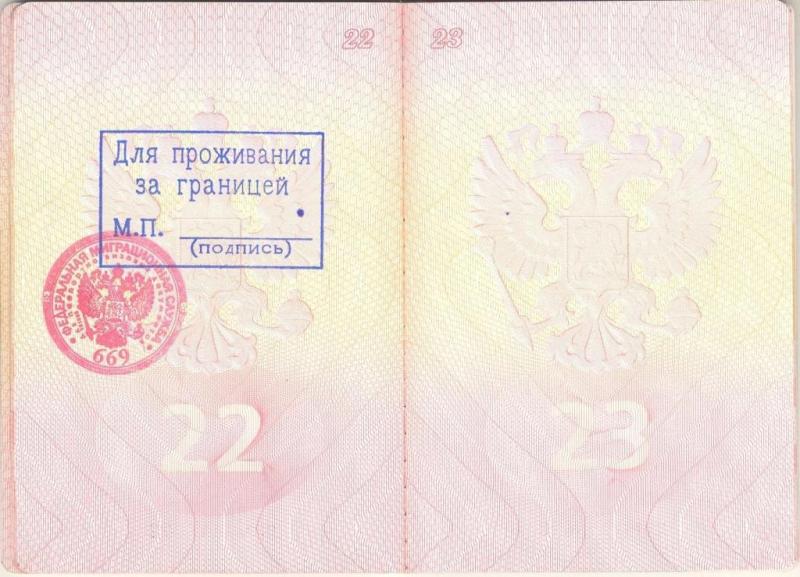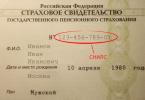Repatriation to Israel is the most popular option for immigrating to a state located in Southeast Asia. Repatriates not only live and work in the country, but also automatically receive Israeli citizenship. The repatriation procedure is quite simple. But only persons of Jewish origin and their immediate family members have the right to it.
In the 21st century, repatriation to Israel does not slow down. Located on the Mediterranean coast, the republic attracts Jewish emigrants from all over the world. Returning to the historical homeland of the ancestors is a simple procedure. The main thing is to confirm Jewish roots with relevant documents.

Repatriation is the return to one's homeland. The repatriation of Jews to Israel is called Aliya. It is carried out under the law "On return" and occurs with the restoration of citizenship rights.
In the 20th century, Aliya was associated with mass oppression (and during the Second World War - with the destruction) of the Jewish people. Now repatriation to Israel is peaceful. For example, migration from Russia comes mainly from peripheral cities with a low standard of living. In search of a better life, residents of the Ukrainian regions also go to the Promised Land.
Immigration steps
Emigration to the coastal state under the repatriation program takes place according to a single principle. Potential repatriates from the Russian Federation and Ukraine perform the following actions:
- They study their ancestry to make sure they have a Jewish relative. We are talking only about relatives in a straight ascending line up to the third knee.
- Gather a package of documentation to confirm Jewish origin.
- Make an appointment with the Israeli diplomatic mission in the country of residence.
- They bring the necessary papers to the diplomatic mission and undergo an interview.
- With a positive result, they receive a visa for leaving for permanent residence.
- They go to a Middle Eastern state, where they start a new life. Repatriates in Israel immediately acquire the status of a citizen. That is, they receive the same rights as the natives.

The procedure for leaving the country takes from six months to 2 years or more.. In case of a negative decision, it is allowed to re-apply. But not earlier than 6 months after the previous refusal.
Who is eligible for repatriation to Israel
Descendants of Jews up to the third generation (children, grandchildren) and members of their families are allowed to leave for a Middle Eastern country under the Law of Return. The main repatriate will need to document that he has or had a parent or grandparent of Jewish nationality. It is important to remember that nationality is transmitted through the mother. But the children and grandchildren of Jews, even on the paternal side, have the right to Aliyah.

Thus, with full right to start the process of repatriation to Israel, applicants can:
- In the birth certificate or other documents of which the nationality "Jew / Jewess" is indicated. It is allowed to include the spouse and children in the application for repatriation.
- In the documents of the parents / parent of which the nationality "Jew / Jewess" is indicated. At the same time, the family relationship "parents / parent - applicant" was confirmed. It is allowed to include the spouse and children in the application for repatriation.
- The documents of the grandparents of which indicate the nationality "Jew / Jewess". At the same time, the family relationship "grandmother / grandfather - parents / parent - applicant" was confirmed. It is allowed to include the spouse in the application for repatriation.
If the applicant's children are fourth-generation Jews only through their great-grandfather, they do not receive the status of repatriates. But they have the right to enter Israel with their parents and live without Israeli citizenship until the age of 18. Citizenship is granted to them upon reaching the age of majority upon renunciation of the citizenship of the country of origin.

Documentation
Candidates for departure to Israel under the repatriation program submit:
- Statement.
- All available passports. In this case, you should check in advance the validity of the passport - at least six months at the time of issuing the visa.
- Passport photos:
- 1 for each expat, including infants.
- Colored.
- 30 by 40 mm. (for Russians).
- 50 by 50 mm. (for Ukrainians).
- Evidence (strictly in the original):
- About birth (of the main applicant and all emigrating relatives).
- About the marriage of mother and father.
- About the birth of the mother.
- About the birth of the father.
- About the birth of a grandfather / grandmother, belonging to the Jewish nationality.
- About the marriage of the grandfather and grandmother of a Jewish parent.

- If Jewish roots are not fully confirmed by birth certificates (for example, there is no “nationality” column), the origin should be confirmed with other papers:
- Soviet passport or other identification card.
- Military ticket of the old sample.
- Extracts from house books.
- Extracts from parish synagogue books.
- Other archival documents.
- Labor books (originals).
- Certificates from all educational institutions where the main applicant and his relatives studied (originals are submitted).
- Military tickets (originals).
- If a repatriate relative lives in Israel, the main documents for him are submitted. They indicate:
- Exact date of repatriation.
- Numbers of ID cards obtained in Israel.
- Home address.
- Phone number.
An important rule applies when applying for repatriation to Israel. No paper, even if it seems insignificant to applicants, will not be superfluous. Any family or archival document can have a positive impact on the fate of the application.
Therefore, applicants will need:
- Various old certificates and extracts indicating the nationality of parents / grandparents.
- Old decisions of judicial or other instances.
- Documents from places of study and employment (certificates, diplomas, thanks, etc.).
- Personal letters.
- Family photos, etc.

It is worth adding that a certificate of non-conviction is not in the list of mandatory documentation indicated on the website of the Israeli embassy. However, in practice, it may be asked to be added to the package of submitted papers. At the same time, the presence of a criminal record will not necessarily become an obstacle in the process of repatriation. Everything is decided individually in each specific case, since there are no clear criteria prescribed in Israeli law.
Visit to the diplomatic mission
Where to go
The collected certificates and certificates are submitted personally to Israeli diplomatic missions abroad. Documents will not be accepted by email or otherwise. Appointments must be made strictly by appointment. Registration is carried out by phone numbers of diplomatic departments.
The Israeli embassy in Moscow is located on Bolshaya Ordynka, 56
Immigrant Russians carry papers to the repatriation department of the Israeli embassy in Moscow. However, for residents of regions remote from the capital, there is another opportunity. They can wait for the arrival of the consul in their region. The consul spends working trips to major cities once every few months. It is also necessary to register for such a meeting in advance by calling the embassy.
Residents of Ukraine submit documentation to the diplomatic mission on the territory of their republic. Diplomatic institutions are located:
- In Kyiv.
- In Dnepropetrovsk.
- In Odessa.
- In Kharkov.
Who to go
When submitting an application and related documents, the personal presence of all repatriates is required. Each family member planning to emigrate to Israel is required to personally visit the embassy/consulate. Exceptions are not made even for small children.
The nuances of a visit
It is worth considering that only folders with papers and personal valuables (phones, money, keys, etc.) are allowed to be brought into the buildings of diplomatic missions. It is forbidden to take with you:
- Beverages.
- Food.
- Medicines.
- Bags (including compact or ladies).
- Other things.

What is asked in an interview
Interviews with repatriates are not a formality, but a serious procedure. Approach it with full responsibility. The questions span the life of the candidates. But first of all, potential Israeli citizens are checked for:
- Reasons for immigrating to Israel
- Compliance of motives and goals with the Law of Return.
- previously provided data.
- Personal plans after entry and in the long term.
- Attitude towards religion, etc.
Particular attention should be paid to the last point. Repatriates, who are Jewish by mother, verbally and when filling out the questionnaire confirm that they profess Judaism. If they voluntarily converted to Christianity, they will be denied repatriation. This does not apply when a person is an atheist. Also, any religion has the right to profess repatriates whose Jewish relative is the father, not the mother.
Obtaining a permanent residence visa
Citizens whose application has been approved by the consul are issued visas for leaving for permanent residence. The document is valid for six months. You must fly to Israel before the expiration of this period.
The visa will be glued into the passport. Before that, the passport should be stamped "For living abroad".

Departure to Israel
As a rule, even at the stage of preparing documents, repatriates turn to the Jewish Agency (Sokhnut) for help. It has branches in many Russian and Ukrainian cities. When moving to Israel, the help of this structure is very important.

Employees of the organization help all persons leaving under the law "On return" on a gratuitous basis. Emigrants are provided with:
- Flight in an organized group.
- Free plane tickets.
- Transportation to the airport (if necessary).
- Arrival meeting.
- Assistance with registration of documents upon arrival.
- Initial support (including assistance in finding a job).
The initial stage of life in Israel
Upon arrival in the republic, repatriates are subjected to additional checks. Then the new residents of Israel are given:
- internal passport.
- "Lifting" money.
- Free sim card.
- Medical guarantees (registration in the health insurance fund).

Immigrants under the repatriation program are financially supported for six months. After 1 year of residence, they have the right to obtain an Israeli passport. Based on this document, citizens will be able to:
- Enter/leave a Middle Eastern state.
- Visit home.
- Travel around the world.
- Without visas to be in the territory of about 100 countries.

Who else has the right to emigrate to Israel
- Employed on a permanent basis foreigners.
- Refugees.
- Israeli spouses.
- Lonely elderly people whose children or grandchildren live in a coastal state.
Emigration of the elderly
Single pensioners have the right to move to Israel if their daughters / sons / grandchildren are legally and permanently in the territory of the republic. Main entry requirements:
- Age Compliance:
- Men over 64 years of age.
- Women are over 62 years old.
- Confirmation that children/grandchildren are ready to accept them.
- Elderly people should not have other close relatives other than those who live in a Middle Eastern state.
The popularity of repatriation to Israel is not decreasing. In 2016 alone, almost 30,000 repatriates arrived in the Promised Land. Over a third of them are from Russia and Ukraine. And there is no doubt that in 2017 the migration figures under the Law of Return will remain at the same level.




